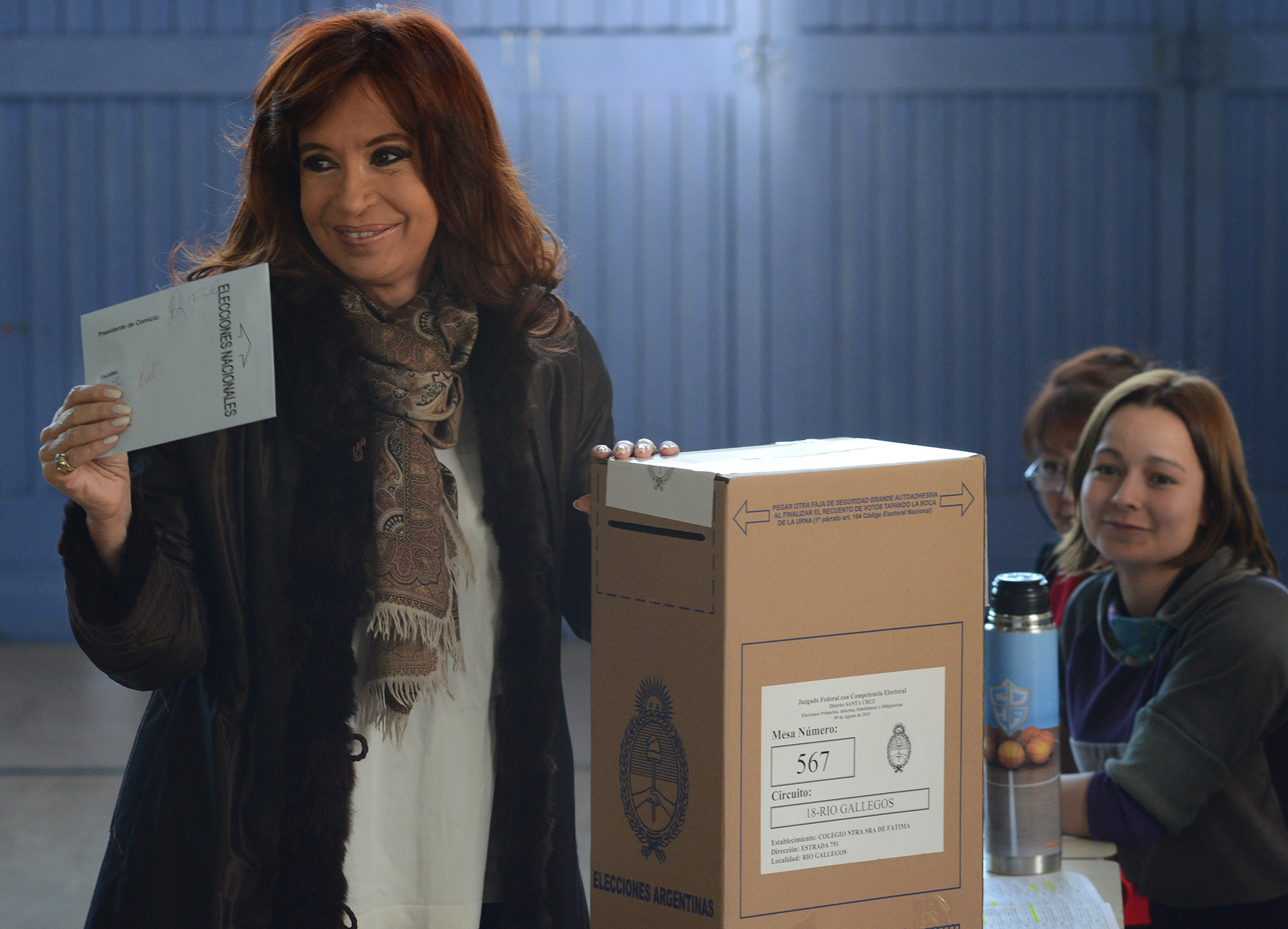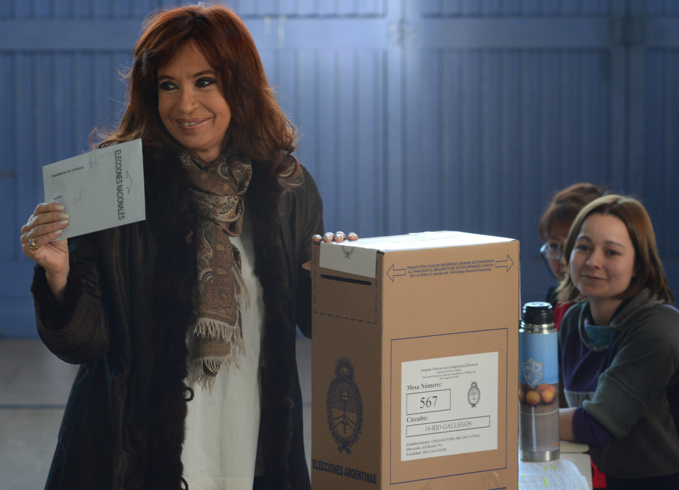The Central Bank of Argentina returned to support the rapidly weakening national currency. According to Reuters, $ 255 million have been allocated from the Central Bank’s reserves for this purpose since the beginning of the week. The currency began to fall after Sunday's primaries, which were won by opposition presidential candidate Alberto Fernandez.
Since August 9, when the exchange rate was 45.3 pesos for $ 1, the Argentine currency fell by 30% to 58.8 pesos for $ 1.
The presidential election will be held in Argentina on October 27. To win in the first round, a candidate must earn more than 45% of the vote (or 40%, provided that margin between the candidate and the closest opponent is at least 10%). According to results of the primaries received after processing the ballots from 98.75% of the polls, 47.65% of voters voted for Alberto Fernandez, nominated by the Frente de Todos party and paired up with ex-president of the country Cristina Kirchner (in case of victory, she will become vice president ). The Juntos por el Cambio coalition of the current head of state, Mauricio Macri, earned only 32.08% of the vote.
Responding to this failure, Mr. Macri announced a number of economic benefits to voters, including an increase in the tax-free minimum wage, one-time additional payments to civil servants and the military at the end of the month, yet another increase in the minimum wage (which size will be determined later). Small businesses will receive exemptions in terms of paying taxes, and students will receive a scholarship increased by 40 % from September. In addition, he promised that gasoline and other fuel prices would be frozen for 90 days. “These are measures that will ease the situation of 17 million workers and their families,” said Mauricio Macri, adding that he was ready to meet the opposition.
During the election campaign, his opponent, Mr. Fernandez, announced that if he wins, he intends to revise the agreement with the International Monetary Fund on a loan of $ 57 billion. Argentina had previously received fund support, including during the debt crisis of 2001-2002, when the country defaulted. At that time, the country's national debt was $ 132 billion, write-offs affected about 70% of obligations. 92% of holders of government securities agreed to it, and litigations about the rest had been going on for 15 years. Eventually, some more $ 4.65 billion were paid.
Mauricio Macri’s government had to cut subsidies on utilities and other social payments to reduce the budget deficit that was inflated during the presidency of Christina Kirchner. One of the main reforms was liberalization of the exchange rate and removal of restrictions on foreign exchange transactions. However, weakening of the peso caused inflation to rise: in June the annual price increase was 55.8%, slowing down from 57.3% in May.
According to the IMF forecast, after a 2.5% reduction in GDP last year, this year the decline will be 1.3%; in 2020 the economy may return to 1.1% growth.
source: reuters.com, capitaleconomics.com
Since August 9, when the exchange rate was 45.3 pesos for $ 1, the Argentine currency fell by 30% to 58.8 pesos for $ 1.
The presidential election will be held in Argentina on October 27. To win in the first round, a candidate must earn more than 45% of the vote (or 40%, provided that margin between the candidate and the closest opponent is at least 10%). According to results of the primaries received after processing the ballots from 98.75% of the polls, 47.65% of voters voted for Alberto Fernandez, nominated by the Frente de Todos party and paired up with ex-president of the country Cristina Kirchner (in case of victory, she will become vice president ). The Juntos por el Cambio coalition of the current head of state, Mauricio Macri, earned only 32.08% of the vote.
Responding to this failure, Mr. Macri announced a number of economic benefits to voters, including an increase in the tax-free minimum wage, one-time additional payments to civil servants and the military at the end of the month, yet another increase in the minimum wage (which size will be determined later). Small businesses will receive exemptions in terms of paying taxes, and students will receive a scholarship increased by 40 % from September. In addition, he promised that gasoline and other fuel prices would be frozen for 90 days. “These are measures that will ease the situation of 17 million workers and their families,” said Mauricio Macri, adding that he was ready to meet the opposition.
During the election campaign, his opponent, Mr. Fernandez, announced that if he wins, he intends to revise the agreement with the International Monetary Fund on a loan of $ 57 billion. Argentina had previously received fund support, including during the debt crisis of 2001-2002, when the country defaulted. At that time, the country's national debt was $ 132 billion, write-offs affected about 70% of obligations. 92% of holders of government securities agreed to it, and litigations about the rest had been going on for 15 years. Eventually, some more $ 4.65 billion were paid.
Mauricio Macri’s government had to cut subsidies on utilities and other social payments to reduce the budget deficit that was inflated during the presidency of Christina Kirchner. One of the main reforms was liberalization of the exchange rate and removal of restrictions on foreign exchange transactions. However, weakening of the peso caused inflation to rise: in June the annual price increase was 55.8%, slowing down from 57.3% in May.
According to the IMF forecast, after a 2.5% reduction in GDP last year, this year the decline will be 1.3%; in 2020 the economy may return to 1.1% growth.
source: reuters.com, capitaleconomics.com



















